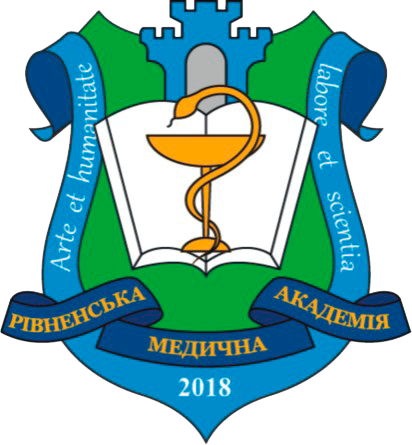USING THE PROJECT METHOD IN THE STUDY OF ORGANIC CHEMISTRY BY FUTURE MASTERS OF PHARMACY
DOI:
https://doi.org/10.32782/health-2025.1.33Keywords:
project method, pharmaceutical education, future Masters of Pharmacy, chemical disciplines, formation of competenciesAbstract
Today, key aspects in teaching chemistry to students of the Pharmaceutical Faculty are the high interest and involvement of students in the educational material. Pharmaceutical education requires new approaches to teaching chemical disciplines, including Organic Chemistry, as a fundamental discipline within which future Masters of Pharmacy have to acquire a number of basic competencies that are necessary for further professional growth in the chosen field of pharmacy.The issue of effective use of modern teaching methods is relevant, one of which is the project method, which involves students in learning new material in an active way. This method can be successfully combined with traditional teaching methods and used in classroom, distance, or blended learning. The project method has a number of advantages, one of which is promoting better assimilation of the material because to complete such a task, the student has to delve deeply into the chosen topic. Independent search for information, its analysis, processing and generalization, and solving specific problems contribute to the development of critical thinking and cognitive activity during the study of Organic Chemistry.This method requires students to be focused, thoughtful, research-based, and creative, as well as a sufficient amount of time and effort. In turn, the teacher plays the role of a consultant who guides the student during the preparation of the educational project. When implementing projects, students use information technologies and online tools, which affects the formation of relevant competencies.This publication describes the project method in the study of Organic Chemistry by future Masters of Pharmacy, and a step-by-step scheme for implementing individual educational projects within the framework of the experiment was developed; the features of implementing a project-oriented approach in the study of Organic Chemistry by students of the Pharmaceutical Faculty and its possible impact on the formation of competencies were revealed.
References
Гриньова М., Донченко В., Жамардій В. Модель застосування ділових та проблемних ігор в освітньому процесі здобувачів вищої освіти з використанням здоров’язбережувальних технологій. Нова українська школа та моделі взаємодії в кризових умовах : колективна монографія / за ред. проф. М.В. Гриньової. Полтава : ПНПУ імені В.Г. Короленка. 2022. С. 129–145.
Almulla M.A. The Effectiveness of the Project-Based Learning (PBL) Approach as a Way to Engage Students in Learning. Sage Open. 10 (3). 2020. DOI: https://doi.org/10.1177/2158244020938702.
Загричук О.М., Привроцька І.Б., Федонюк Л.Я. Використання засобів інтерактивних технологій у пізнавальній діяльності студентів при вивченні дисципліни «Медична біологія». Буковинський медичний вісник. 2020. Т. 24. №1 (93). С. 207–212. DOI: https://doi.org/10.24061/2413-0737.XXIV.1.93.2020.28.
Шевченко В.Г., Муравйов П.Т., Колодій В.В., Бородаєв І.Є. Системне формування і розвиток клінічного мислення студентів за допомогою проблемних методів навчання. Медична освіта. 2023. (2). С. 103–107. DOI: https://doi.org/10.11603/m.2414-5998.2023.2.13671.
Yekimov S., Vasylyshyn V., Tsyna V., Tsyna A. and Tytarenko V. Using the project method to motivate students studying physics. Journal of Physics: Conference Series 1889. 2021. P. 1–5. DOI: https://doi.org/10.1088/1742-6596/1889/2/022016.
Мельник О., Приступко О. Формування комунікативної компетентності майбутніх фармацевтів у процесі вивчення хімічних дисциплін. Нові технології навчання. № 95. 2021. С. 158–167. DOI: https://doi.org/10.52256/2710-3560.95.2021.18.
Шунков В.С. Навчання і викладання на основі дослідження у підготовці фармацевтів в університетах Великої Британії. Наукові записки. Серія : Педагогічні науки. 2022. (207). С. 380–385. DOI: https://doi.org/10.36550/2415-7988-2022-1-207-380-385.
Duc C.N., Thi P.N., Hoang T.N., Thanh T.N.T., The T.N. A literature review of the project-based teaching method in the education of Vietnam. International Journal of Educational Methodology. 2022. 8 (3). 567–584. DOI: https://doi. org/10.12973/ijem.8.3.567.
Головченко О.І., Вельчинська О.В., Афанасенко О.В., Головченко О.В. Робоча програма навчальної дисципліни «Органічна хімія» освітньо-професійної програми «Фармація» другого магістерського рівня вищої освіти за спеціальністю І8 «Фармація, промислова фармація» в Національному медичному університеті імені О.О. Богомольця, кафедра хімії ліків та лікарської токсикології. 2024–2025 н.р. С. 1–42.
Пандазі А., Станжур Т. Проєктне навчання як засіб формування компетентностей майбутніх менеджерів. Український Педагогічний журнал. 2023. (4). С. 88–95. DOI: https://doi.org/10.32405/2411-1317-2023-4-88-95.
Волошина О.В., Зелінський В.Ю. Роль проєктної технології у підготовці майбутніх фахівців до професійної діяльності. Вісник науки та освіти. 2023. № 5 (11). С. 424–435. DOI: https://doi.org/10.52058/2786-6165-2023-5(11)-424-435.
Protsyk H.M. Project method: past and future. Medical Education. 2020. (1). P. 67–71. DOI: https://doi.org/10.11603/ me.2414-5998.2020.1.10996.
Стандарт вищої освіти України (2022). Галузь знань 22 «Охорона здоров’я» спеціальності 226 «Фармація, промислова фармація» спеціалізації 226.01 «Фармація», 226.02 «Промислова фармація».





